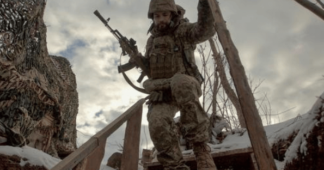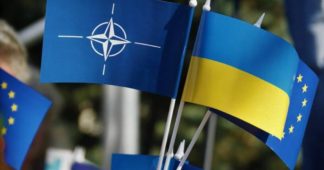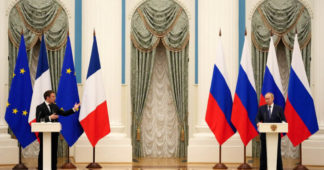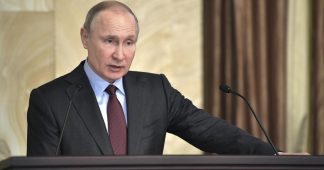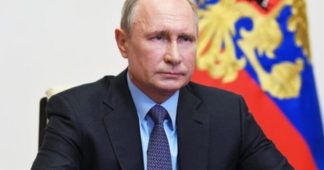The deployment comes after the Russian leader formally recognized the breakaway republics of Donetsk and Luhansk
Posted on gories
Russian President Vladimir Putin ordered the Russian military to send troops to the breakaway republics of Donetsk (DPR) and Luhansk (LPR) in Ukraine’s eastern Donbas region in a mission he described as a peacekeeping operation.
The order came after Putin signed a decree recognizing the sovereignty of the two republics. Putin also instructed Russia’s Foreign Ministry to establish diplomatic relations with the DPR and LPR.
The eastern Ukraine separatists don’t control all of the territories they claim in the Donbas. At this point, it’s not clear if the Russian troops will try to push Ukraine out of the claimed territory or if they will be deployed to the line of control, the buffer zone set by the Minsk agreements, which established the fragile ceasefire in the Donbas.
The DPR and LPR separatists made renewed calls for Russian recognition and military assistance amid a spike in ceasefire violations. The recognition means Russia no longer believes that the conflict can be settled diplomatically through the Minsk agreements.
The Russian troop deployment could be enough for the US to label it as an “invasion” of Ukraine, which could trigger major sanctions against Russia. The White House responded to Putin’s recognition by implementing sanctions that ban US citizens from doing business in the DPR and LPR and hasn’t yet responded to the peacekeeping deployment.
The DPR and LPR first declared independence in 2014 after the US-backed coup in Kyiv. The US has long accused Russia of having troops deployed in the Donbas, something Moscow has denied.
Published at news.antiwar.com
We remind our readers that publication of articles on our site does not mean that we agree with what is written. Our policy is to publish anything which we consider of interest, so as to assist our readers in forming their opinions. Sometimes we even publish articles with which we totally disagree, since we believe it is important for our readers to be informed on as wide a spectrum of views as possible.
